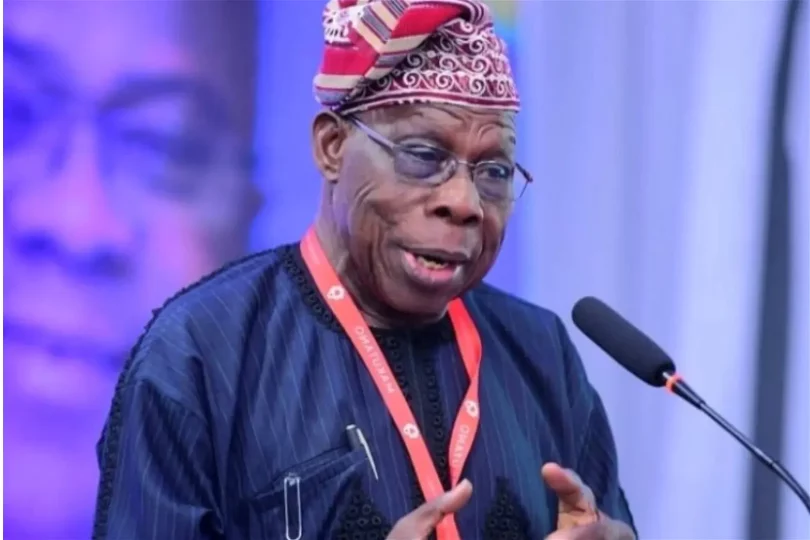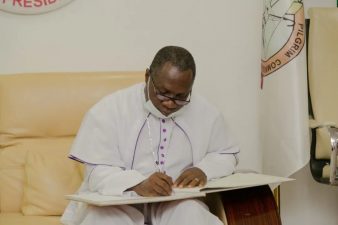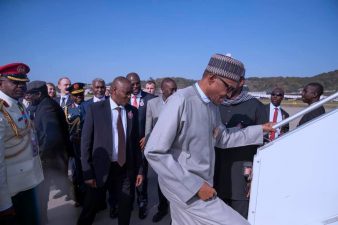*Strips western democracy naked as “government of a few people over all the people or population”
By OUR REPORTER
At the event in Abeokuta, the world class former Nigerian Leader, Obasanjo, said the Western style of democracy failed in Africa because it did not take into consideration the views of the majority of the people.
Nigeria’s former President Olusegun Obasanjo has said that liberal democracy has not been working as a system of government in Africa because it was “forced” on the continent.
He said this in his keynote address at a high-level consultation on “Rethinking Western Liberal Democracy for Africa”, held at the Olusegun Obasanjo Presidential Library, Abeokuta, Ogun State capital, on Monday.
Obasanjo’s position on Monday appears to justify decisions of some Francophone countries of West Africa, who decided that they needed to rethink and redesign the western democracy that has failed persistently to move their countries forward, which the military class did not believe the current political class could achieve.
At the event in Abeokuta, the world class former Nigerian Leader, Obasanjo, said the Western style of democracy failed in Africa because it did not take into consideration the views of the majority of the people.
He described Western Liberal Democracy as a “government of a few people over all the people or population”.
”These few people are representatives of only some of the people and not full representatives of all the people.
“Invariably, the majority of the people were wittingly or unwittingly kept out. This is why we should have ‘Afro Democracy’ in place of Western Liberal Democracy.”
Obasanjo said African countries have no business operating a system of government in which they have no hands in its definition and design.
“The weakness and failure of liberal democracy as it is practised stem from its history, content, context and its practice.
“Once you move from all the people to representatives of the people, you start to encounter troubles and problems.
“For those who define it as the rule of the majority, should the minority be ignored, neglected and excluded?
“In short, we have a system of government in which we have no hands to define and design and we continue with it, even when we know that it is not working for us.
“Those who brought it to us are now questioning the rightness of their invention, its deliverability and its relevance today without reform,” he said.
Obasanjo explained that the essence of any system of government should be the welfare and well-being of the people.
“Here, we must interrogate the performance of democracy in the West — where it originated from — and with us the inheritors of what we are left with by our colonial powers.
“We are here to stop being foolish and stupid. Can we look inward and outward to see what in our country, culture, tradition, practice and living over the years that we can learn from?
“(Something) that we can adopt and adapt with practices everywhere for a changed system of government that will service our purpose better and deliver.
“We have to think out of the box and, after, act with our new thinking.
“You are invited here to examine clinically the practice of liberal democracy, identify its shortcomings for our society and bring forth ideas and recommendations that can serve our purpose better,” he said.
In his remarks, a former governor of Ekiti State, Kayode Fayemi, noted that liberal democracy in Africa was confronted with many challenges.
Fayemi said the improvement of the welfare of the people remained important, saying that democracy faced challenges of delivery in Africa.
“Non-delivery of development outcomes for the people must be adequately addressed so that democracy can deliver,” he said.




